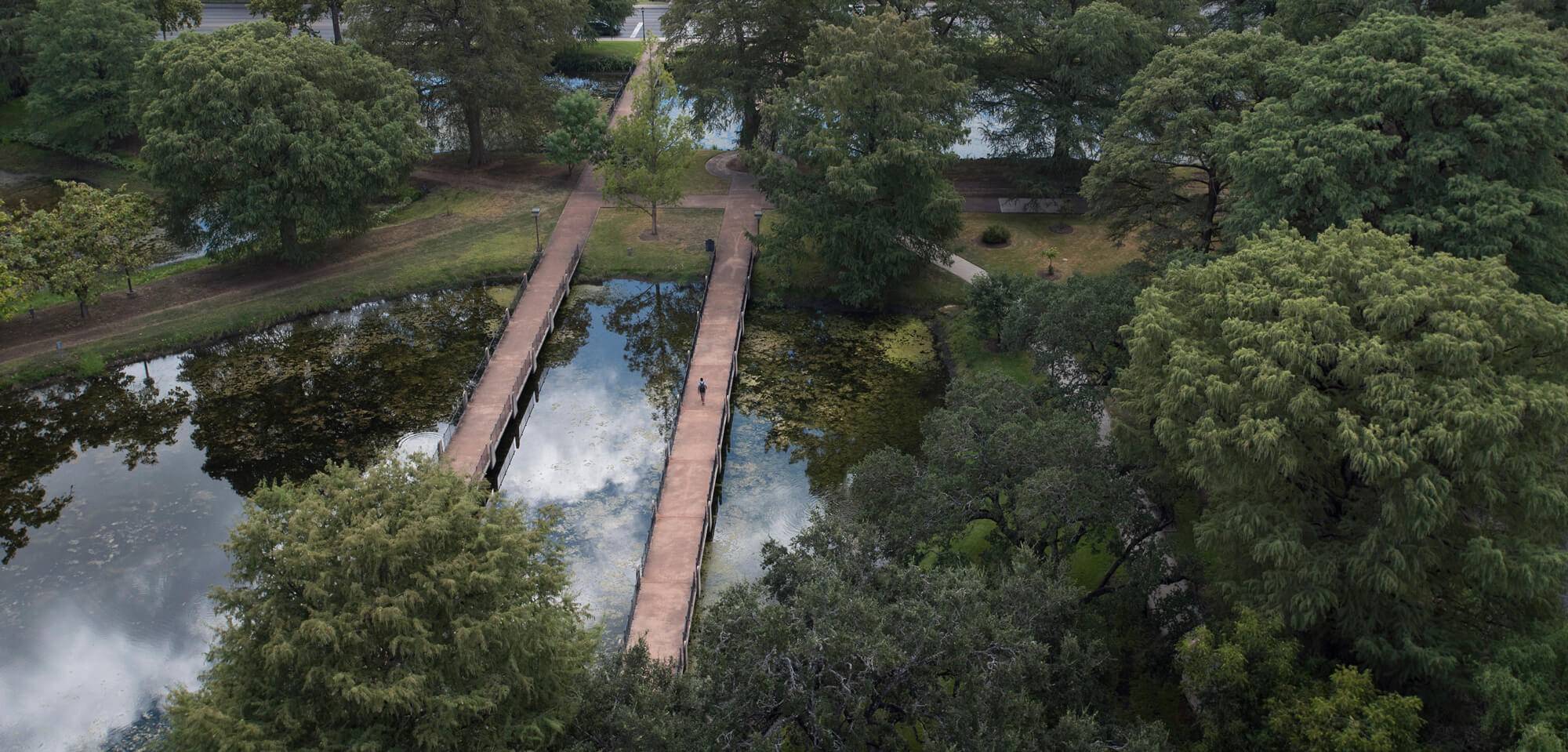Emma Carberry | January 14, 2020
Each year, the Longview Foundation selects a cohort of teacher educators as Global Teacher Education Fellows. These fellows are assigned expert global learning mentors and are tasked with redesigning one of their courses to include global learning outcomes. Dr. Minda Morren López, associate professor in the Department of Curriculum and Instruction, is one of seven nationwide educators named as fellows in the 2019-2020 cohort.
López has been interested in global learning for many years and has consistently incorporated global ideas into her research and her courses. However, she had not studied globalization systematically, and wanted to deepen her knowledge of the field through expert mentorship. In addition to the fellowship aligning with her personal values and interests, she also felt that it was a logical fit for Texas State’s teacher education program, which emphasizes infusing multiple perspectives in the classroom.
This past fall, López chose to redesign the undergraduate Human Growth and Development course to better incorporate the global learning outcomes that were introduced to her through the fellowship. Typically, López says, the course has been taught through a very traditional western view of how human beings grow and develop throughout their lives. With the help of her mentor, Mary Curran, Director of Local-Global Partnerships at Rutgers University, she spent time building lessons that incorporated multiple perspectives to better align the course with the values of the College of Education.
The fellowship has introduced López to a structured way of thinking about globalization based on principles and design. For instance, while she has consistently made an effort to incorporate global readings into her courses, the fellowship has introduced her to global learning principles (global self-awareness, perspective-taking, cultural diversity, personal and social responsibility, understanding global systems, and applying knowledge to contemporary global contexts) that have provided the framework for her course. To measure her students’ learning, she implemented global learning competence pre-and post-tests using the Globally Competent Learning Continuum. The overall results indicate her students grew the most in the areas of assessing students’ global competencies, understanding intercultural communication, and creating a classroom environment that values diversity and global engagement.
A notable way that these principles guided López was in developing a new assignment in which students were asked to select and read a young adult novel from a global culture and create a unit related to human growth and development based on that book. Previous iterations of her course had included a similar assignment in which students were asked to analyze human development in a film chosen from a list she had curated. However, upon re-examining this assignment, she realized that several of the films on her list were popular American films that were familiar to her students and were not introducing them to new perspectives or global themes.
When developing the new assignment, López was able to consult a variety of the resources that had been introduced to her through the fellowship, such as Worlds of Words: Center of Global Literacies and Literatures, a program out of the University of Arizona that compiles lists of books that tell authentic stories about diverse global cultures. With their help, she was able to create a list from which her students could choose a book that would open them up to new worldviews throughout the course of the assignment.
Affirming students’ own cultures as well as bringing unfamiliar cultures into the classroom is essential for López. She says that in an ideal world, all people would be able to experience multiple perspectives by traveling and visiting new areas, but realistically not everyone can. She sees the classroom as a place where teachers can bring those new perspectives so that all people have access to them. It is not only important for school children to learn about perspective-taking, but also for her own Texas State students who will become educators to students from a variety of different backgrounds. Understanding humanity and common human experiences with empathy is fundamental for educators. “To me,” López shares, “global perspectives are key to anyone being successful in this day and age, and to not have that holds people back.”
At the end of the fall semester, López presented the results of her course redesign to the members of her cohort, half of whom will begin their own course redesigns this spring. Her fellowship experience will continue through the spring semester, during which time she will attend webinars from global learning experts, maintain her mentoring relationship, and learn from the rest of the cohort members’ experiences. The fellowship will culminate in a $2000 stipend and an additional $1000 that will fund López to present what she has learned over the two semesters at an international conference.
López acknowledges that she has learning left to do in her venture to fully understand globalization, but this experience has helped her to realize her own shortcomings and provided her with the resources necessary to overcome them. “One of the biggest realizations has been how much there is out there that’s been systematically studied,” she reflects. “For me, incorporating global learning in my courses has been primarily based on my life and my experience, and now I’ve been exposed to scholars who have dedicated their careers to this and reading their research.” As López’s knowledge of globalization grows, Texas State students have the benefit of learning from her experiences and taking their newly developed global competencies into their own classrooms as future teachers.
